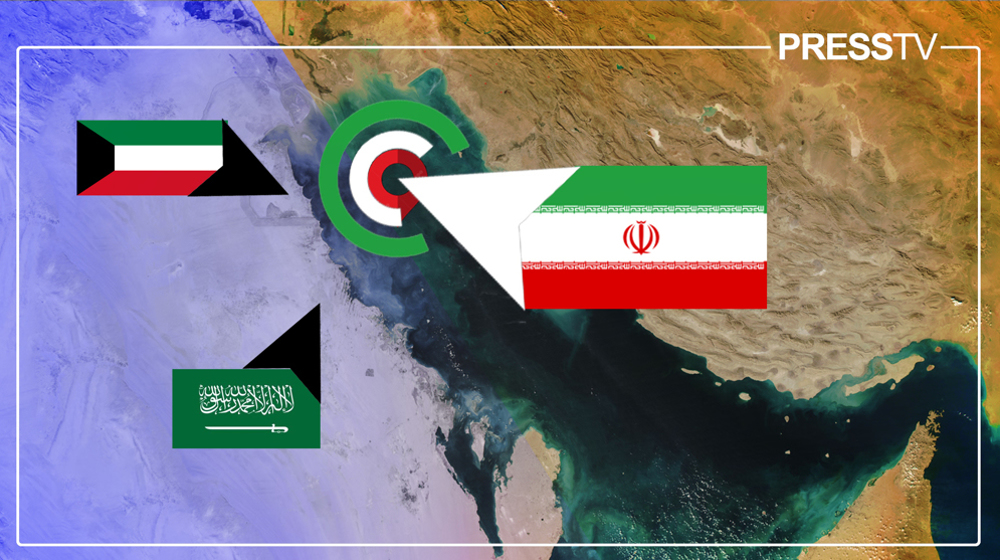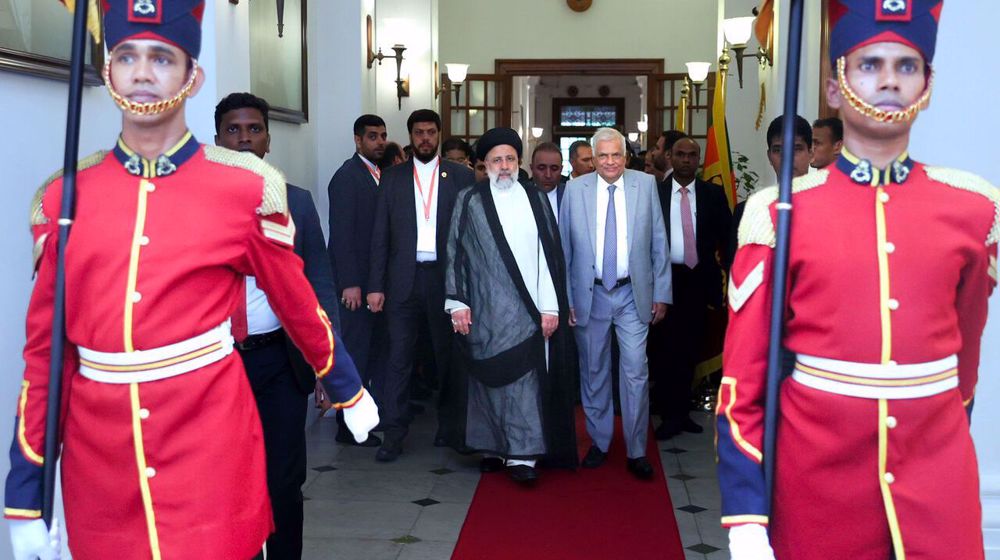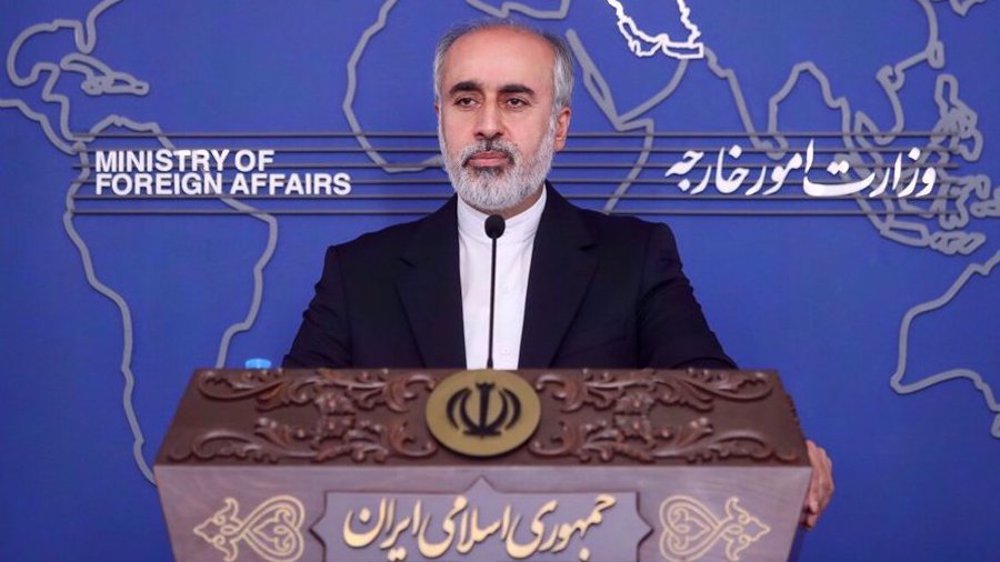Playing with words not enough, US must change its practical stance: Iran
Iran's Foreign Ministry spokesman says a game of words by the United States is not important to Iran, but the Islamic Republic expects a change in Washington’s general approach to the Iranian nation.
Abbas Moussavi made the remarks on Sunday in reaction to the latest statements by the US Secretary of State Mike Pompeo, who said Washington is willing to speak with Iran "with no preconditions."
“For the Islamic Republic of Iran, a game of words and expressing covert goals under the guise of new words is not a criterion for action, but a change in the United States’ general approach and practical stance toward the Iranian nation is the criterion,” the Iranian spokesperson said.
Moussavi added, “The emphasis put by Mr. Pompeo on the need to continue a campaign of maximum pressure on Iran is indicative of persistence of the wrong approach of the past, which needs to be rectified.”

Addressing a news conference in Switzerland earlier in the day, the US secretary of state said Washington is keen to hold negotiations with Iran "with no preconditions" amid the intensification of tensions between the two countries.
"We are prepared to engage in a conversation with no preconditions. We are ready to sit down with them," Pompeo said.
He; however, added that the United States would continue working to rein in Iran's "malign activity."
"The American effort to fundamentally reverse the malign activity of this Islamic Republic, this revolutionary force, is going to continue," he said.
The United States remarkably stoked tensions with Iran in May 2018 when US President Donald Trump pulled his country out of the nuclear accord, officially known as the Joint Comprehensive Plan of Action (JCPOA), and re-imposed harsh sanctions against the Islamic Republic in defiance of global criticisms.
The tensions saw a sharp rise on the first anniversary of Washington’s exit from the deal as the US moved to ratchet up the pressure on Iran by tightening its oil sanctions and building up its military presence in the region.
Washington has since further increased the pressure on Iran, sending military reinforcements, including the USS Abraham Lincoln aircraft carrier strike group, a squadron of B-52 bombers, and a battery of patriot missiles, to the Middle East.
Speaking weeks after the US withdrawal from the JCPOA, Pompeo laid out 12 tough conditions for any "new deal" with Tehran.
The conditions included withdrawal of Iran's military advisers from Syria, who have been helping the country's legitimate government in its fight against terrorist outfits, which have been mostly aided and abetted by the US and its Western and regional allies.
Later in December 2018, Iranian Foreign Minister Mohammad Javad Zarif strongly dismissed the possibility of holding negotiations with the United States after Washington set conditions for talks with Tehran, saying the Islamic Republic will never talk to those who set conditions for it.
In a post on his official Twitter account, Zarif released a video showing him seated with US journalist Robin Wright on the sidelines of the Doha Forum 2018 in the Qatari capital and wrote, "We will not talk to anybody who sets 12 conditions for us to talk to them after having violated a [UN] Security Council resolution that they sponsored themselves."
Pompeo's Sunday comments marked the first time that the US administration has so clearly stated its willingness to open a no-strings-attached dialog with Iran.
Late last month, Trump toned down his anti-Iran rhetoric after a period of saber-rattling that saw him and other US officials threaten the Islamic Republic with war in hope of getting concessions, saying his administration is not looking for regime change in Iran and would rather sit down for talks.
"We're not looking for regime change, we're looking for no nuclear weapons. I really believe that Iran would like to make a deal, and I think that's very smart of them, and I think that's a possibility to happen," Trump said at a press conference with Japanese Prime Minister Shinzo Abe in Tokyo.
Pompeo’s new remarks on Iran talks come after various Iranian officials at high levels have frequently noted that following Washington’s unilateral withdrawal from the JCPOA, Tehran can no more trust it for any further negotiations on the nuclear issue.
Leader of the Islamic Revolution Ayatollah Seyyed Ali Khamenei late in May ruled out the possibility of talks between Tehran and Washington, saying such negotiations will be “fruitless”, “harmful”, and “a total loss”.
“The Islamic Republic of Iran will absolutely not sit for talks with America … because first, it bears no fruit and second, it is harmful,” the Leader said in a meeting with a number of university professors, elites and researchers in Tehran.
Iran's President Hassan Rouhani said on April 24 that Washington’s claims of seeking negotiations with Iran are “mere lies” and that the United States, in fact, intends to force the Iranian nation to its knees.
Contrary to what some are trying to promote, “the US is not willing for negotiations at all,” the president told a cabinet session.
VIDEO | Press TV's news headlines
US troopers crack down on pro-Palestinian protests at University of Texas
VIDEO | German warship departs Red Sea as EU 'naval mission' fails
VIDEO | Palestinians inspect rubble of destroyed building in Rafah
Yemeni forces strike US, Israeli vessels in fresh pro-Palestinian operations
‘Say no to Biden’: US college being pressed not to endorse genocide
VIDEO | UN: Alarming food insecurity crisis grips Afghanistan
VIDEO | Stuck in quagmire














 This makes it easy to access the Press TV website
This makes it easy to access the Press TV website